How Much Does It Cost To Ship a Car Enclosed
When it comes to transporting your car with maximum protection, enclosed car shipping is a reliable and secure option. Enclosed transport involves using a fully covered trailer or container to shield your vehicle from the elements, road debris, and potential damage during transit. While it offers enhanced security, it’s important to consider the cost associated with this premium service.
The cost of shipping a car enclosed can vary depending on several factors. First, the distance of the shipment plays a significant role. Longer distances will generally result in higher costs due to increased fuel and labor expenses. The type and size of the vehicle are also factors, as larger or heavier vehicles may require specialized equipment or additional accommodations, influencing the overall cost.
Moreover, the route and availability of carriers can impact pricing. If you’re shipping from or to remote areas with limited carrier access, it may affect the cost. Additionally, the time of year can influence rates. High-demand seasons or peak periods may result in higher prices due to increased competition among customers for limited carrier capacity.
Finally, additional services or specific requirements can affect the overall cost. For instance, if you need expedited shipping or extra insurance coverage, it will likely incur additional charges. Other factors to consider include the need for door-to-door service, vehicle storage, or white-glove handling.
To determine the exact cost of shipping your car enclosed, it’s recommended to request quotes from reputable car shipping companies. Provide them with relevant details such as the make, model, dimensions of your vehicle, desired pick-up and drop-off locations, and any additional services required. The shipping companies will evaluate your specific needs and provide you with a personalized estimate tailored to your shipment.
While enclosed car shipping is generally more expensive compared to open transport, it offers valuable benefits such as superior protection, reduced exposure to potential risks, and added peace of mind. By considering the factors mentioned above and comparing quotes from different car shipping providers, you can make an informed decision and select the best option for shipping your car enclosed within your budget and specific requirements.
The Average Cost To Ship a Car

When it comes to shipping a car, understanding the average cost can help you plan and budget accordingly. The cost to ship a car can vary depending on several factors, including the distance, vehicle type, shipping method, and additional services required.
On average, the cost to ship a car within the same state or a short distance can range from $300 to $800. For longer distances within the United States, such as coast-to-coast shipments, the average cost can range from $800 to $1,500. These estimates are for open transport, which is the most common and cost-effective method.
If you opt for enclosed transport, which provides enhanced protection, the cost can be higher. Enclosed transport is ideal for luxury, classic, or high-value vehicles. The average cost for enclosed transport can range from $1,000 to $2,500 for shorter distances, and for longer distances or cross-country shipments, it can go up to $3,000 or more.
Factors such as the vehicle’s size and weight can also impact the cost. Larger vehicles or those with non-standard dimensions may require specialized carriers or additional accommodations, leading to higher shipping costs.
Furthermore, the time of year can affect prices. High-demand seasons, such as summer, can result in increased rates due to higher customer demand and limited carrier availability.
Additional services, such as door-to-door delivery, expedited shipping, or extra insurance coverage, can also contribute to the overall cost. It’s important to consider your specific needs and preferences when requesting quotes from car shipping companies to ensure you get an accurate estimate.
To get an exact cost for shipping your car, it’s recommended to reach out to multiple reputable car shipping companies and provide them with details about your vehicle, desired pick-up and drop-off locations, and any additional services required. They will evaluate your specific requirements and provide you with a personalized quote based on the specifics of your shipment.
By understanding the average cost and considering the various factors involved, you can make an informed decision and select a car shipping option that suits your budget and transportation needs.
Factors That Affect Car Shipping Costs

When it comes to shipping a car, several factors can affect the cost of transportation. Understanding these factors can help you estimate and plan for the expenses associated with car shipping.
- Distance: The distance between the pick-up and drop-off locations is a significant factor in determining the cost. Longer distances generally result in higher shipping costs due to increased fuel consumption, driver wages, and time required for the shipment.
- Vehicle Type and Size: The size and type of the vehicle also influence the cost. Larger vehicles or those with non-standard dimensions may require specialized carriers, which can lead to higher shipping expenses. Moreover, heavier vehicles may incur additional fees due to weight restrictions and equipment requirements.
- Shipping Method: The chosen shipping method affects the cost. Open transport, where vehicles are loaded onto an open carrier, is the most common and cost-effective option. Enclosed transport, which provides enhanced protection, is usually more expensive due to the added security and specialized equipment involved.
- Seasonal Demand: Seasonal demand fluctuations can impact car shipping costs. During peak seasons or holidays when demand is high, prices tend to increase due to limited carrier availability and higher customer demand. It’s important to consider these factors and plan accordingly to secure competitive rates.
- Pick-Up and Drop-Off Locations: The locations for pick-up and drop-off can influence the cost. Remote or less-accessible areas may result in higher prices due to limited carrier availability or additional transportation logistics required.
- Additional Services: Additional services such as door-to-door delivery, expedited shipping, or extra insurance coverage can add to the overall cost. These services provide convenience and peace of mind but come at an additional expense.
- Fuel Prices: Fluctuations in fuel prices can impact the overall cost of car shipping. Higher fuel prices may result in increased transportation costs as carriers factor in the additional expense.
To get an accurate estimate, it’s recommended to request quotes from reputable car shipping companies. Provide them with detailed information about your vehicle, desired pick-up and drop-off locations, preferred shipping dates, and any additional services required. They will consider these factors and provide you with a personalized quote tailored to your specific needs.
By understanding the factors that influence car shipping costs, you can better anticipate the expenses involved and make an informed decision when selecting car shipping services.
What Is Enclosed Auto Transport?
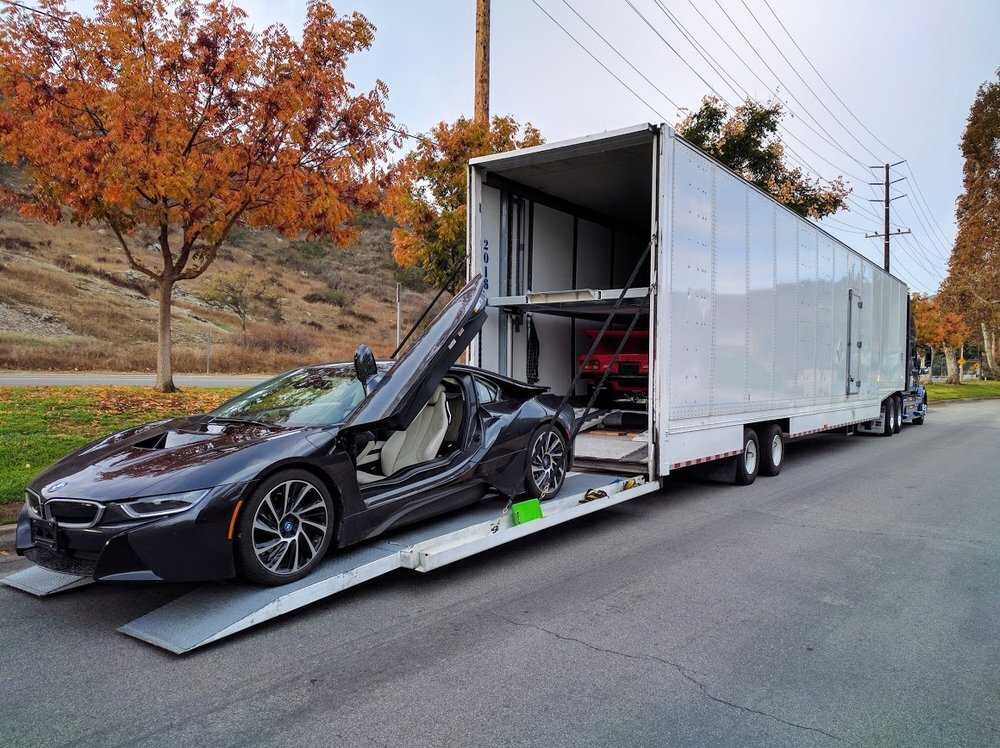
Enclosed auto transport is a specialized method of shipping vehicles that offer enhanced protection and security during transit. Unlike open transport, which involves loading vehicles onto an open carrier, enclosed transport utilizes fully enclosed trailers or shipping containers to shield vehicles from potential damage caused by weather conditions, road debris, and other external elements.
The main advantage of enclosed auto transport is the added level of protection it provides for high-value, classic, luxury, or exotic vehicles. The enclosed trailers or containers provide a secure and sheltered environment, safeguarding the vehicles from dust, dirt, rain, snow, and other environmental factors that could potentially cause damage.
Enclosed transport is particularly popular among collectors, enthusiasts, and individuals who have invested in unique or valuable automobiles. It offers peace of mind knowing that the vehicle is shielded from any potential risks or hazards during transit.
However, it’s important to note that enclosed auto transport generally comes at a higher cost compared to open transport. The additional expenses can be attributed to the specialized equipment, limited capacity, and increased safety measures involved in the enclosed shipping process. The cost can vary depending on factors such as the distance of the shipment, the vehicle’s size and weight, the specific route, and any additional services required.
When considering enclosed auto transport companies, it’s crucial to choose a reputable and experienced car shipping company. Look for companies that specialize in enclosed transport and have a track record of handling high-value vehicles with care. Additionally, ensure that the company provides adequate insurance coverage to protect your vehicle in case of any unforeseen incidents during transit.
In conclusion, the enclosed auto transport industry offers a premium level of protection for vehicles that require an extra layer of security during shipment. While it may come at a higher cost, the added peace of mind and assurance that your valuable vehicle is shielded from potential damage make it a worthwhile investment for those who prioritize vehicle protection during transportation.
How Much Does It Cost To Ship a Car in an Enclosed Carrier?

When it comes to shipping a car in an enclosed carrier, the cost can vary depending on several factors. The price of enclosed auto transport is typically higher compared to open transport due to the added level of protection and specialized equipment involved. However, the specific cost will depend on various factors, including the distance, vehicle type, route, and additional services required.
On average, the cost to ship a car in an enclosed carrier can range from $1,000 to $3,000 or more for shorter distances. For longer distances or cross-country shipments, the cost can increase to $3,000 or higher. These estimates are approximate and can vary based on individual circumstances.
Factors that can affect the cost include the size and weight of the vehicle. Larger or heavier vehicles may require specialized enclosed auto transport carriers or additional accommodations, leading to higher shipping costs.
The distance of the shipment is also a significant factor. Longer distances require more time, fuel, and resources, which can contribute to a higher cost.
Furthermore, the specific route and pick-up and drop-off locations can influence the price. Remote or less-accessible areas may result in higher costs due to limited carrier availability or additional transportation logistics required.
Additional services can also add to the overall cost. These can include door-to-door delivery, expedited shipping, or additional insurance coverage. It’s important to consider your specific needs and preferences when requesting quotes from car shipping companies to get an accurate estimate.
To determine the exact cost of shipping your car in an enclosed carrier, it’s recommended to reach out to multiple reputable car shipping companies. Provide them with detailed information about your vehicle, desired pick-up and drop-off locations, and any additional services required. They will evaluate your specific requirements and provide you with a personalized quote based on the specifics of your shipment.
Remember to choose a reputable and experienced car shipping company that specializes in enclosed transport and offers adequate insurance coverage to protect your vehicle during transit. By considering these factors and obtaining quotes, you can make an informed decision and budget for the cost of shipping your car in an enclosed carrier.
Difference Between Open and Enclosed Car Shipping
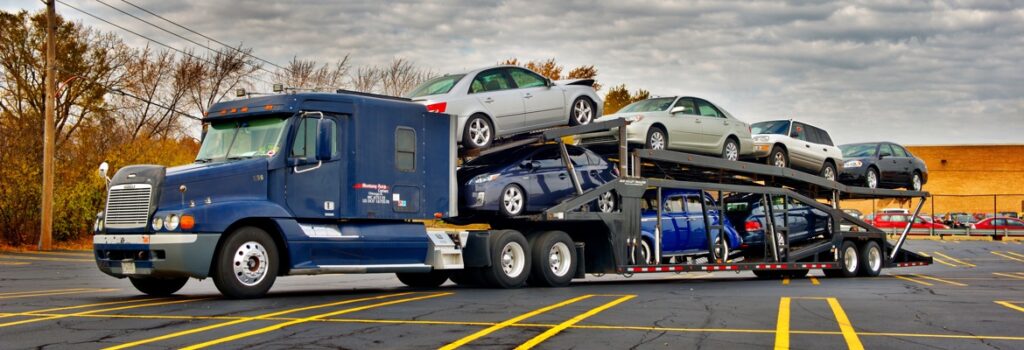
When it comes to shipping a car, there are two primary options: open-car shipping and enclosed-car shipping. Understanding the differences between these two methods can help you make an informed decision based on your needs and budget.
Open car shipping, also known as open transport, is the most common and cost-effective method. It involves loading vehicles onto an open carrier, where they are exposed to the elements during transit. This means that your car will be visible and susceptible to potential damage from weather conditions, road debris, and other external factors. However, it is important to note that the majority of vehicles are transported using open-car shipping, and the risk of damage is generally low.
On the other hand, enclosed car shipping offers a higher level of protection for your vehicle. It involves using fully enclosed trailers or shipping containers to shield vehicles from potential damage caused by weather conditions, dust, dirt, and road debris. This method is commonly chosen for classic, luxury, or exotic cars, as well as high-value vehicles that require extra care and protection. Enclosed car shipping provides peace of mind knowing that your vehicle will be transported in a secure and sheltered environment.
While open car shipping is more affordable, enclosed car shipping comes at a higher cost due to the added level of protection and specialized equipment involved. The price difference can range from a few hundred dollars to a few thousand dollars, depending on factors such as the distance of the shipment, the size and weight of the vehicle, and the specific route.
When deciding between open and enclosed car shipping, consider the value and condition of your vehicle, as well as your budget and personal preferences. If your vehicle holds sentimental or monetary value, or if it requires extra protection, enclosed car shipping may be the ideal choice. However, if your vehicle is of average value and you are comfortable with the minimal risks associated with open car shipping, it can be a cost-effective option.
Ultimately, both open and enclosed car shipping methods have their advantages and considerations. It’s important to evaluate your specific needs, weigh the costs and benefits, and choose the option that best suits your requirements for transporting your vehicle.
Advantages of Enclosed Car Transport
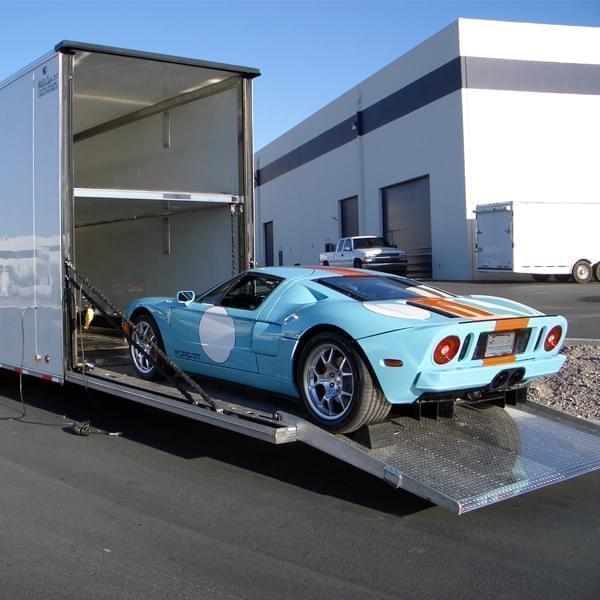
Enclosed car transport, also known as enclosed auto shipping, offers several advantages that make it an appealing choice for individuals who value the highest level of protection and care for their vehicles during transportation. Here are some key advantages of enclosed car transport:
- Enhanced Protection: One of the primary advantages of enclosed car transport is the superior level of protection it provides. Enclosed trailers or containers shield vehicles from potential damage caused by adverse weather conditions, road debris, dust, and other external elements. This is especially beneficial for high-value, luxury, classic, or exotic vehicles that require maximum protection.
- Reduced Risk of Damage: With enclosed car transport, the risk of damage is significantly minimized. Vehicles are securely loaded and stored within the enclosed trailer or container, ensuring that they are not exposed to potential hazards or accidents during transit. This gives owners peace of mind, knowing that their valuable vehicles are in safe hands.
- Privacy and Confidentiality: Enclosed car transport offers a higher level of privacy and confidentiality compared to open transport. With enclosed trailers or containers, vehicles are not visible to the public or other drivers on the road. This can be important for individuals who prefer to keep their vehicles discreet or those transporting unique or sensitive automobiles.
- Customized Handling: Enclosed car transport often provides customized handling to cater to the specific needs of each vehicle. This may include using soft tie-downs, padded flooring, and other specialized equipment to ensure the vehicle remains secure and protected during transit. Additionally, the enclosed auto transport company offer white-glove treatment, where vehicles are handled with the utmost care and attention to detail.
- Peace of Mind: Perhaps the most significant advantage of enclosed car transport is the peace of mind it brings to vehicle owners. By choosing enclosed transport, owners can be confident that their vehicles will arrive at the destination in pristine condition, free from any potential damage caused by external factors. This can be particularly important for collectors, enthusiasts, and individuals who have invested significant time and resources into their vehicles.
While enclosed car transport offers numerous advantages, it’s important to consider that it typically comes at a higher cost compared to open transport. The specialized equipment, increased security measures, and limited capacity contribute to the higher price. However, for those seeking the highest level of protection and peace of mind for their vehicles, the benefits of enclosed car transport often outweigh the additional cost.
Overall, enclosed car transport is a preferred choice for individuals who prioritize the utmost protection, privacy, and care for their vehicles during transportation. Whether it’s a luxury car, classic beauty, or exotic dream machine, enclosed car transport ensures that your vehicle arrives at its destination in pristine condition.
Limitations of Enclosed Car Transport
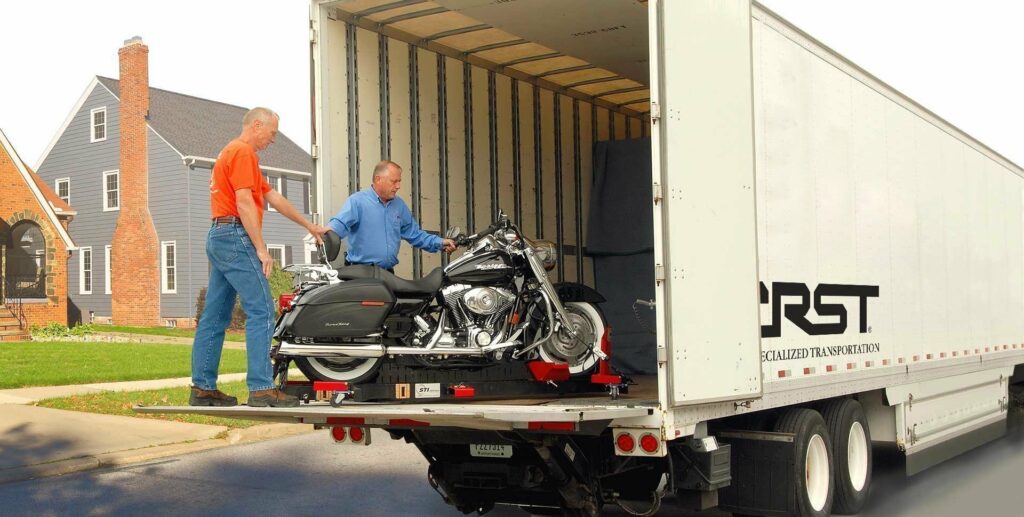
While enclosed car transport offers numerous advantages, it’s important to consider its limitations before making a decision. Here are some key limitations of enclosed car transport:
- Higher Cost: One of the primary limitations of enclosed car transport is its higher cost compared to open transport. The additional level of protection, specialized equipment, and limited capacity contribute to the increased price. If you are on a tight budget, the higher cost of enclosed transport may be a deterrent.
- Limited Availability: Enclosed car transport services are generally less common and have limited availability compared to open transport. This means that finding an available carrier or scheduling a shipment may require more time and effort, especially during peak seasons or for remote locations. It’s essential to plan and book in advance to secure a spot with an enclosed carrier.
- Longer Transit Times: Enclosed car transport often involves fewer vehicles being transported at a time due to limited capacity. As a result, transit times can be longer compared to open transport. If you have a tight timeline or need your vehicle delivered quickly, enclosed transport may not be the most suitable option.
- Limited Accessibility: The larger size and weight of enclosed trailers or containers may restrict access to certain pick-up and drop-off locations. If your desired locations have limited space or challenging entryways, it may be more difficult for an enclosed carrier to accommodate your request. Open transport, on the other hand, offers greater flexibility in terms of accessibility.
- Restricted View: While the enclosed environment provides superior protection, it also means that you won’t be able to visually inspect your vehicle during transit. If you prefer to keep an eye on your vehicle throughout the shipping process, open transport may be a better choice as it allows for visual monitoring.
- Size Limitations: Enclosed car transport may have limitations on the size and type of vehicles that can be accommodated. Large or oversized vehicles may require specialized carriers or alternative shipping methods, which could further increase the cost or logistical challenges.
It’s important to weigh these limitations against the advantages of enclosed car transport to determine if it aligns with your specific needs and preferences. If the protection and security of your vehicle outweigh the associated limitations and you are willing to invest in the higher cost, enclosed car transport can be a worthwhile choice. However, for those seeking a more budget-friendly option or faster transit times, open transport may be a more suitable alternative.
Average Enclosed Car Shipping Cost Based on Vehicle Size
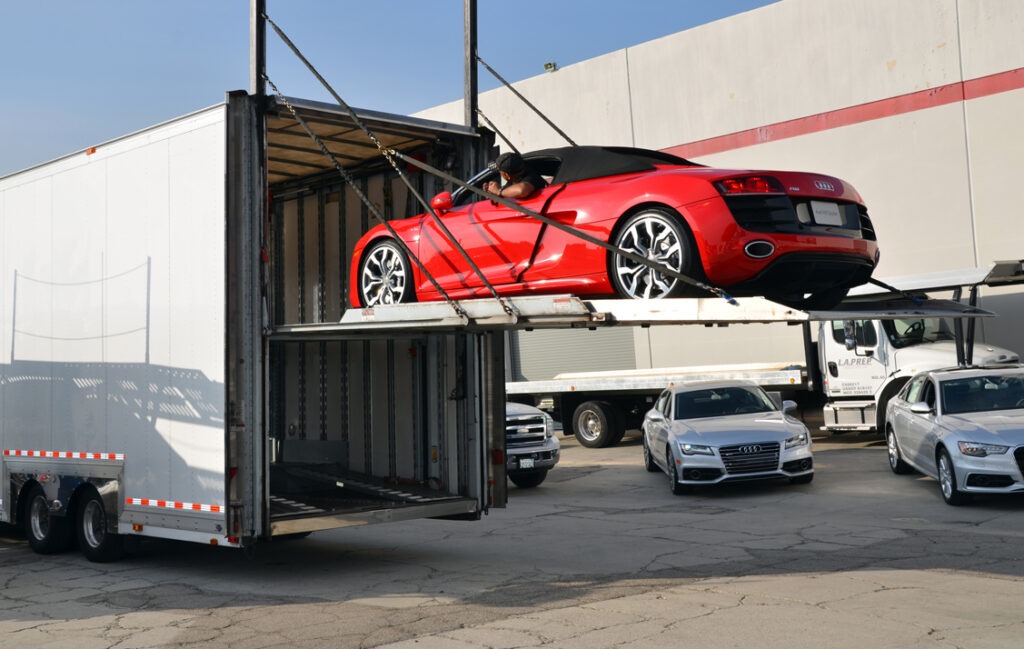
The average enclosed car shipping cost can vary depending on various factors, including the size of the vehicle being transported. Larger vehicles generally require more space and may require specialized equipment, which can influence the overall cost. Here is a breakdown of the average car shipping cost based on vehicle size:
- Compact Cars: Compact cars are smaller in size and typically lighter, making them more cost-effective to transport. On average, the enclosed car shipping cost for compact cars can range from $800 to $1,200.
- Mid-Size Cars: Mid-size cars, such as sedans and coupes, fall in the middle range in terms of size and weight. The average cost for shipping a mid-size car in an enclosed carrier is typically between $1,000 and $1,500.
- SUVs and Trucks: Larger vehicles like SUVs and trucks require more space and may have higher weight, resulting in a higher shipping cost. On average, shipping an SUV or truck in an enclosed carrier can range from $1,500 to $2,500.
- Luxury and Exotic Cars: Luxury and exotic cars often require extra care and attention during transportation due to their high value and unique features. The enclosed car shipping cost for luxury and exotic vehicles can start at $1,500 and go up to $3,500 or more, depending on the specific make and model.
It’s important to note that these are average cost ranges and can vary depending on other factors like the distance of the shipment, the specific route, additional services requested (such as expedited shipping or white-glove treatment), and the current market conditions.
When obtaining quotes for enclosed car shipping, it’s advisable to reach out to multiple reputable car shipping companies and provide them with accurate details about your vehicle to get an accurate estimate. This will help you determine the most suitable and cost-effective option for transporting your vehicle in an enclosed carrier.
FAQs

Why Is Enclosed Car Transport More Costly Than Open Car Transport?
- Enhanced Protection: Enclosed car transport provides a higher level of protection for vehicles during transit. The enclosed trailers or containers shield vehicles from external elements, such as road debris, dust, and weather conditions. The added security measures and protective features contribute to the increased cost compared to open car transport.
- Limited Capacity: Enclosed car transport typically has limited space within the trailers or containers. This results in fewer vehicles being transported at a time, reducing the overall capacity. The limited capacity translates to higher costs per vehicle to cover the operational expenses of the carrier.
- Specialized Equipment: Enclosed car transport requires specialized equipment to load and secure vehicles inside the trailers or containers. These specialized features ensure that vehicles are properly immobilized and protected during transportation. The investment in specialized equipment adds to the overall cost of enclosed car transport.
- Higher Insurance Coverage: Enclosed car transport often includes higher insurance coverage to safeguard against potential damages or incidents. The higher insurance coverage provides peace of mind to customers but also contributes to the increased cost.
- Premium Service: Enclosed car transport is often considered a premium service due to the added level of protection, personalized attention, and specialized handling. The premium nature of enclosed car transport is reflected in the higher price tag.
It’s important to weigh the benefits of enhanced protection and added security against the higher cost when deciding between enclosed and open car transport. While enclosed car transport may be more costly, it provides peace of mind for customers who prioritize the protection of their valuable or delicate vehicles during transit.
How Much Does Enclosed Car Shipping Cost Per Mile?
The cost of enclosed car shipping per mile can vary depending on several factors. However, it’s important to note that car shipping costs are typically not calculated on a per-mile basis. Instead, car shipping companies consider factors such as the distance of the shipment, vehicle size, specific routes, additional services, and current market conditions. The overall cost is usually determined by these factors rather than a fixed per-mile rate. To obtain an accurate estimate for enclosed car shipping, it is recommended to reach out to reputable car shipping companies and provide them with specific details about your shipment for a customized quote.
What Is the Average Shipping Cost for a Car?
The average shipping cost for a car can vary depending on several factors, including the distance of the shipment, the type and size of the vehicle, the shipping method (open or enclosed), the specific route, and current market conditions. On average, the cost for shipping a car within the same country can range from $500 to $1,500. International shipments or longer distances may incur higher costs. It’s important to obtain quotes from reputable car shipping companies to get an accurate estimate based on your specific requirements. Factors such as vehicle condition, additional services, and insurance coverage can also influence the final cost.

